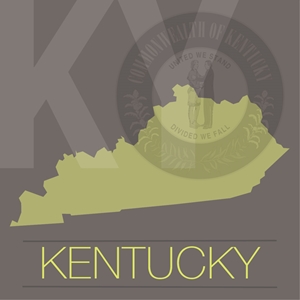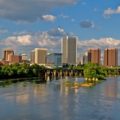
As the weather gets warmer and the last bits of winter melt away, people around the U.S. are bracing themselves for allergy season – fifty million people, to be exact. The Asthma and Allergy Foundation of America reported that 40 percent of children and 30 percent of adults are impacted by seasonal irritants. From spring through fall, sniffles and sneezes seem to echo from sea to shining sea.
While allergies affect people all over the nation, their severity can differ greatly across state lines. Read on to discover the worst – and best – states for allergy sufferers.
Good vs. bad: What factors are at play?
Because plants, animals, mold and other irritants are present all over the world, allergies can never be completely avoided. However, the environmental and medical climates of certain states can make them better – or worse – spots to live when dealing with allergies. High pollen counts, poor air quality, and a low number of qualified allergists can inconvenience allergy sufferers. On the other hand, dry climates, mountainous regions and coastal locations can provide them with comfortable homes.

Worst states:
Mississippi
Located in the South, Mississippi is home to a humid climate, plenty of trees and a notoriously high pollen count. As such, it's a region most allergy sufferers may want to avoid during peak allergy season. The state's capital city, Jackson, topped the Asthma and Allergy Foundation of America's Spring Allergy Capitals list in 2016.
Fortunately, Mississippi is well equipped to handle its population of allergic residents and visitors. Healthline noted that Jackson has more than one allergist per 10,000 allergic locals, which is a higher ratio than many other urban areas.
Ohio
In addition to high pollen counts, ozone smog can also aggravate allergies and worsen symptoms, explained the National Resources Defense Council in its 2015 report, "Sneezing and Wheezing: How Climate Change Could Increase Ragweed Allergies, Air Pollution, and Asthma." The study found that seven cities in Ohio, including Columbus, Youngstown, Akron, Cincinnati, Toledo, Akron and Dayton, are risky environments for allergy sufferers due to their ozone problems.
"We think of the state of Ohio as the #1 wheeziest, sneeziest state because it has seven cities. These cities are home to five million Ohioans, a sizable amount of population exposed to ozone health risk," said Juan Declet-Barreto, Ph.D., the study's lead other, to EcoWatch.
"Memphis has a worse than average pollen rating."
Tennessee
Tennessee is home to many gorgeous flowers and trees, but what's easy on the eyes isn't always so great for the rest of the body. The abundant natural beauty of this southern state, combined with its high temperatures, make it a difficult location for people with allergies.
Memphis, one of Tennessee's biggest, most lively hubs, earned the number four spot on the Asthma and Allergy Foundation of America's Spring Allergy Capitals list in 2016, due its worse than average pollen ranking. Memphis also earned a below average score for the amount of residents treating their allergies with medicine, and scored about average for its number of available certified allergists.
Virginia
The National Resources Defense Council named Richmond, Virginia, the "sneeziest and wheeziest" city in 2014 for its risky combination of high pollen levels and poor air quality.
The source noted that the area has been on the radar of allergen watchers for some time, and earned a similarly negative status in 2010 and 2011. According to the source, nearly 7 percent of Richmond residents suffered from asthma in 2012, and the city continues to be a hotspot for asthma-related emergency room trips. While other parts of the state may provide more comfortable settings for allergy sufferers, Richmond represents a high-risk environment.
Best states:
California
California's massive size means that not every part of the state is ideal for allergy sufferers, but it contains a few cities that boast allergy-friendly climates. Cafe Mom named San Francisco, San Diego and Coronado Island as ideal oases due in part to their ocean breezes, waterfront locations and moderate humidity.
Oregon
Travel a bit further north and you'll find another location ideal for people with allergies: Oregon. Portland, which is often known as Oregon's quirkiest city, earned a very low ranking from the Asthma and Allergy Foundation of America's 2010 list of worst cities for allergy sufferers. And in this case, a low score is a good thing. Oregon has a manageable pollen rate, a relatively cool climate and is located on the coast – features that prove helpful when trying to keep allergies in check.
The good news is that no matter where you live, you can find relief from allergy symptoms through high quality allergy control products. Medicine, hypoallergenic bedding and other allergy solutions can reduce symptoms and improve quality of life.









